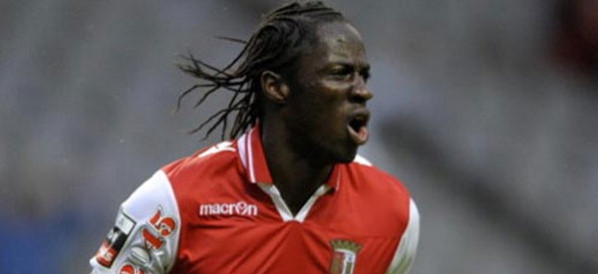 10 Terms
10 TermsHome > Terms > English (EN) > Walt Disney
Walt Disney
(1901 – 1966) Walt Disney brought visions and values of small-town America to mass media and theme parks; his multimedia conglomerate continues to grow after his death. Disney characters, films, books, toys and places, aggressively marketed, have sold America as a magical kingdom to a global audience. Others have read the man and his legacy as an evil empire defined by exaltation of carefully controlled consumerism, with over 400 Disney stores around the world selling everything from lunch boxes to the Tarzan CD-ROM.
As an artist in Kansas City Kansas in 1919, Disney became involved in the production of local animation/live-action shorts (Laugh-O-Grams). By 1923 he had moved to Los Angeles, CA and created his own creative team and formats for animation. By 1928, after business setbacks mediated by brother Roy Disney produced Steam-boat Willie, which united Mickey Mouse with sound (Walt did the voice). Over time, Disney’s productions increased in quality (with music and color in the Silly Symphonies series), while merchandising of Mickey and other items built revenues.
In the 1930s, Disney Studios pushed the boundaries of animation, including the first animated feature film Snow White (1939) and the growing artistry and complexity of Pinocchio (1941) and Fantasia (1942), despite continuing financial concerns and sometimes problematic labor relations. After the Second World War, Disney’s ability to control products and profits from re-releases, marketing tie-ins and new ventures provided a foundation to move into television and Disneyland (1955). The company also continued to control its labor force tightly supporting HUAC investigations of Hollywood labor organizers.
From Disney’s initial televisual outing, ABC’s Disneyland (1954–8), which promoted the planned theme park on its first show, some form of Disney prime-time children’s television showcase continued for thirty years, although changing titles and networks (in addition to the child ensemble of the Mickey Mouse Club, ABC, 1955–9). Disney continued to seek creative development and public recognition through films like Mary Poppins (1964), plans for a larger, visionary Disneyworld and publicity suggesting him for a Nobel prize. At his death in 1966, primary ownership of the studio stayed with the family Roy Disney finished the Florida project before his death in 1971, by which time studio profits had reached $250 million.
Despite the creative heritage the Disney corporation controlled, the next decade saw diffuse initiatives in films and audiences. By the early 1980s, corporate Disney was vulnerable to takeover battles that attracted Ivan Boesky and Michael Milken. Finally in 1984, the family reasserted control, bringing in Michael Eisner, Frank Wells and Jeffrey Katzenberg to revitalize the company. Their initiatives spurred Disney production in mature films (Touchstone, Hollywood Pictures, Buena Vista), distribution (Miramax), radio, television, cable, multimedia and, finally the second golden age of Disney animation with Who Framed Roger Rabbit? (1987), The Little Mermaid (1989) and successors. Disney theme parks continued a global expansion in Tokyo (1983), a stillgrowing EuroDisney (1992) and Hong Kong (estimated opening 2005), augmented by the urban Disney-Quest concept and Caribbean cruises.
Disney’s corporate growth was rocked by the Eisner/Katzenberg split (as well as problems with Michael Ovitz), and subsequent court cases dragged out details of finance and vituperation. In 1996, nonetheless, Disney moved to acquire the ABC network, creating a concentration of entertainment power that has generated worries about conflicting interests in journalism and creative competition. With Celebration, its new urbanist planned community near Disneyworld, the corporation has blurred the boundaries of theme park and idealized “real life.” The Disney saga revels in many themes of American ideology—making it through work, promoting freedom, supporting family and hometown. Darker shadows appear in heavy-handed control of labor, stereotypes of gender, race and place, and incessant selling, not of the last product but the next. Here, its expanse, power and ideologies remain themes of concern even as new generations of children worldwide delight in these products themselves.
- Part of Speech: noun
- Synonym(s):
- Blossary:
- Industry/Domain: Culture
- Category: American culture
- Company: Routledge
- Product:
- Acronym-Abbreviation:
Other Languages:
Member comments
Terms in the News
Billy Morgan
Sports; Snowboarding
The British snowboarder Billy Morgan has landed the sport’s first ever 1800 quadruple cork. The rider, who represented Great Britain in the 2014 Winter Olympics in Sochi, was in Livigno, Italy, when he achieved the man-oeuvre. It involves flipping four times, while body also spins with five complete rotations on a sideways or downward-facing axis. The trick ...
Marzieh Afkham
Broadcasting & receiving; News
Marzieh Afkham, who is the country’s first foreign ministry spokeswoman, will head a mission in east Asia, the state news agency reported. It is not clear to which country she will be posted as her appointment has yet to be announced officially. Afkham will only be the second female ambassador Iran has had. Under the last shah’s rule, Mehrangiz Dolatshahi, a ...
Weekly Packet
Language; Online services; Slang; Internet
Weekly Packet or "Paquete Semanal" as it is known in Cuba is a term used by Cubans to describe the information that is gathered from the internet outside of Cuba and saved onto hard drives to be transported into Cuba itself. Weekly Packets are then sold to Cuban's without internet access, allowing them to obtain information just days - and sometimes hours - after it ...
Asian Infrastructure Investment Bank (AIIB)
Banking; Investment banking
The Asian Infrastructure Investment Bank (AIIB) is an international financial institution established to address the need in Asia for infrastructure development. According to the Asian Development Bank, Asia needs $800 billion each year for roads, ports, power plants or other infrastructure projects before 2020. Originally proposed by China in 2013, a signing ...
Spartan
Online services; Internet
Spartan is the codename given to the new Microsoft Windows 10 browser that will replace Microsoft Windows Internet Explorer. The new browser will be built from the ground up and disregard any code from the IE platform. It has a new rendering engine that is built to be compatible with how the web is written today. The name Spartan is named after the ...
Featured Terms
Éder
Éderzito António Macedo Lopes (born 22 December 1987), commonly known as Éder, is a Portuguese professional footballer who plays for S.C. Braga as a ...
Contributor
Featured blossaries
tim.zhaotianqi
0
Terms
40
Blossaries
4
Followers
Top Ten Instant Noodles Of All Time 2014
 10 Terms
10 TermsBrowers Terms By Category
- Human evolution(1831)
- Evolution(562)
- General archaeology(328)
- Archaeology tools(11)
- Artifacts(8)
- Dig sites(4)
Archaeology(2749) Terms
- Zoological terms(611)
- Animal verbs(25)
Zoology(636) Terms
- Electricity(962)
- Gas(53)
- Sewage(2)
Utilities(1017) Terms
- Meteorology(9063)
- General weather(899)
- Atmospheric chemistry(558)
- Wind(46)
- Clouds(40)
- Storms(37)
Weather(10671) Terms
- Action toys(4)
- Skill toys(3)
- Animals & stuffed toys(2)
- Educational toys(1)
- Baby toys(1)




